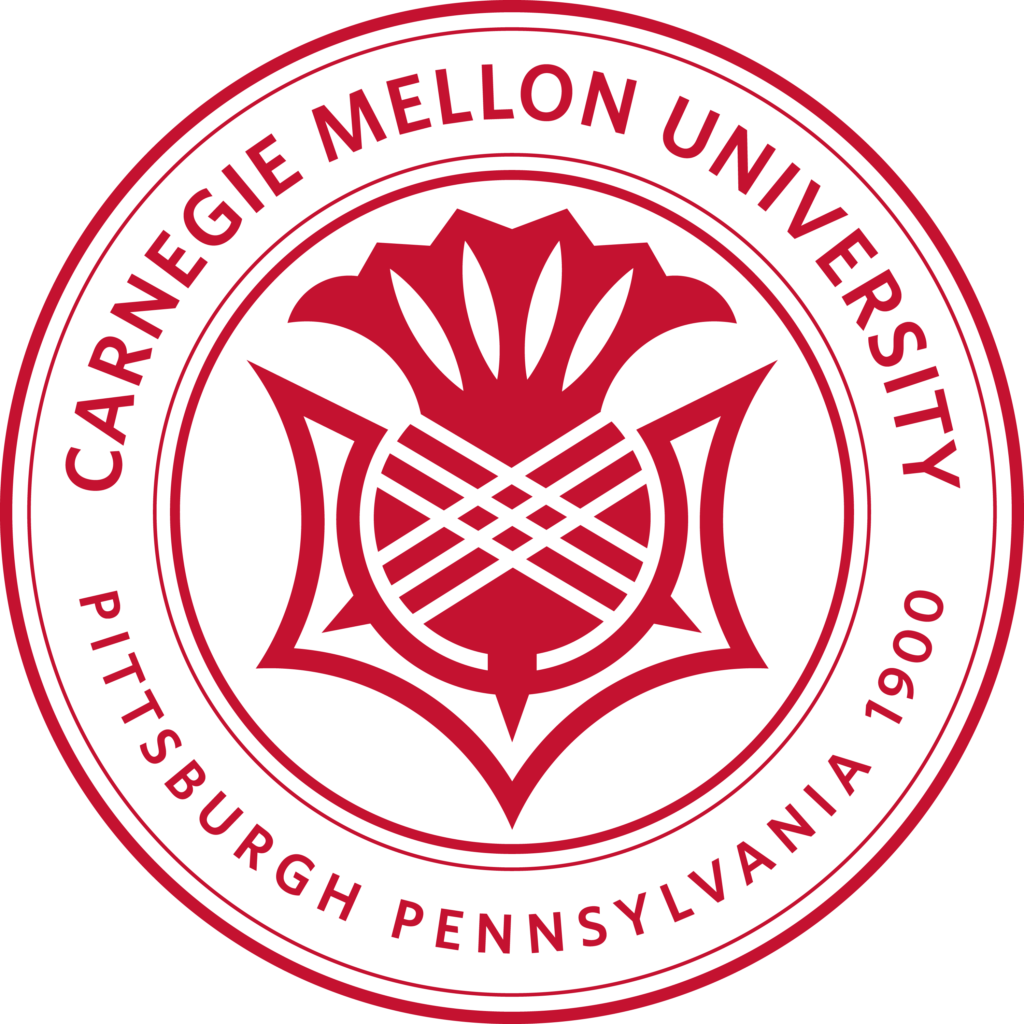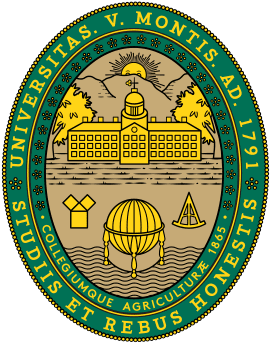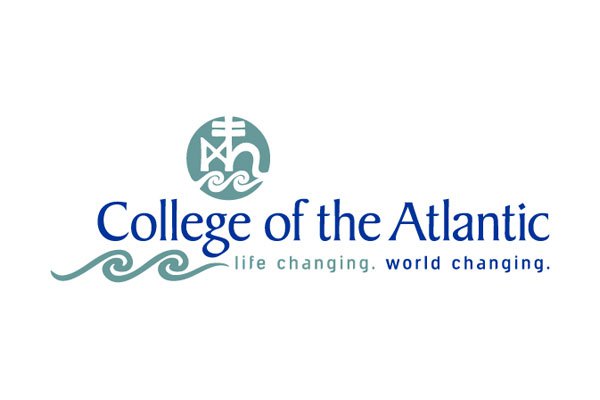The last several decades have seen significant advancements in environmental efforts on college campuses across the United States. Green initiatives and sustainability have become a common cause among college students, faculty, and staff. These efforts ensure that the needs of future students are met and assist to reduce an unhealthy strain on the environment. The actions of university members extend beyond college campuses to affect surrounding communities on the local and global levels. As powerful environments for change, these 50 green schools represent some of the most effective efforts toward sustainability.
Methodology:
If you feel the need to choose a college to attend that has environmentally-conscious initiatives, this list of top “green schools” can be a starting point in your selection process. However, with all the different “green” rating systems for colleges out there, it was worth putting together a composite list of colleges and universities. The following list applies a number of selection filters (and/or) to form a composite ranking:
- Inclusion in a recent Princeton Review “green” schools list
- Inclusion in the EPA.gov list
- A recent rating of gold, silver, or bronze from AASHE.org’s STARS list.
- Current or pending green initiatives.
Those criteria, plus curated selection resulted in this article’s list of 50 top “green-conscious” U.S. college and university campuses.
Acronyms Used in This Article:
AASHE: Association for the Advancement of Sustainability in Higher Education. Use the main site to search for various degree programs relating to sustainability.
EPA: U.S. Environmental Protection Agency
STARS: Sustainability, Tracking, Assessment & Rating System from AASHE (above)
50. Iowa State University
Ames, Iowa

The website for the office of sustainability at Iowa State University is packed with initiatives for sustainable and responsible school practices and events. Their vision statement sees Iowa State University “as a national leader in developing and embodying sustainable practices that integrate excellence in education with institutional accountability for our natural, economic, and human resources.”
Currently engaged in a plastic-free eco challenge event, Iowa State University has
- a sustainable course directory,
- a yearly sustainability report as well as
- a Live Green! Revolving Loan Fund.
The Loan Fund includes green funding avenues that are available for ISU students as well as ISU faculty and staff. These funds are earmarked for sustainable projects and initiatives on campus. Previously funded projects on the Iowa State University campus include:
- Seed Science Center
- Black Engineering Energy Efficiency
- Dining Composting
Iowa State University has been certified as a Tree Campus USA, achieved “Bronze Recognition for Bicycle Friendly City” by the League of American Bicyclists, and recently received Gold Certification from the Association for the Advancement of Sustainability in Higher Education.
49. Saint Louis University
St. Louis, Missouri

Saint Louis University has a myriad of resources for students and faculty who wish to be environmentally responsible. With multiple green student groups available including the Green Billikens, SLU has established sustainability goals which include the
- reduction of potable water consumption and
- energy intensity.
SLU’s Doisy Research Center is LEED Certified. The Research Center is equipped with energy-efficient heating and cooling, furnished with recycled steel, concrete, carpet, and other materials. The Center also includes bike racks, a green roof, and facilities to accommodate those who ride their bikes to work.
Saint Louis University offers popular “green degrees” such as
- Environmental Engineering,
- Environmental Health Sciences,
- Environmental Law
- Wildlife Ecology among others.
SLU also provides a Green Office Guide, EPA Tips for Greener Living, and A Guide to Sustainability in College and in Life.
48. Grand Valley State University
Allendale Charter Township, Michigan

Grand Valley State University, located in Michigan, has boasted a sustainability office for 13 years. Sustainability, according to Grand Valley State’s website is the seventh value at the university. Student opportunities include:
- Peer to peer education
- Scholarships
- Student sustainability organizations and
- Jobs
- Internships in sustainable practice
GVSU has grown from initiatives to defined practices within the administration and campus operations, student involvement and education, and community engagement. These actions have given Grand Valley State a reputation in the community and in the state for best practices in applied sustainability.
They have also earned Grand Valley State University a spot in Princeton Review’s most environmentally responsible colleges in the country for 10 years in a row. Grand Valley has also received a Gold Rating from the Association for the Advancement of Sustainability in Higher Education for the third year in a row, becoming the first in the state of Michigan to do so.
47. Champlain College
Burlington, Vermont

Located in beautiful Burlington, Vermont, Champlain College is continuing a long-standing institutional tradition of a “commitment to addressing issues of social justice and environmental stewardship.” Through its “Sustain Champlain” initiative, Champlain College has introduced a campus-wide effort to introduce and enact “green” practices in four main areas:
- Institution
- Operations
- Academics
- Culture
As an institution, Champlain has been a leader in “green” initiatives, reducing greenhouse gas emissions. For its efforts, among many honors for being a green college, Champlain has been given a 2019 Silver Rating in the STARS Report.
Campus operations have taken on the mindset of sustainability in terms of:
- Buildings
- Cooling
- Dining Services
- Grounds
- Heating & Electrical
- Purchasing
- Renewal Energy
- Transportation
- Water
- Waste Reduction and Diversion
- Through Partnerships with sustainability leaders in the field.
Faculty, staff, and students are encouraged to embrace and learn more about ways to create an environmentally responsible learning culture. Champlain College provides resources for students to take an active role in promoting a green way of life in the broader community. Green practices have been put in place on campus, and Champlain offers major and minor degree-focus options.
46. Wesleyan University
Middletown, Connecticut

Wesleyan University’s Sustainability Office helps keep the university and its community of students, faculty, and staff green. Its goal is to “promote inclusive and equitable environmental sustainability.”
Wesleyan received a STARS Silver Rating and was number 18 in this year’s Princeton Rating of the top 50 green schools. The university sponsors
- sustainability awareness events,
- offers programs for student involvement,
- 35% percent of all departments offer at least one course in sustainability and 12% of all courses concern sustainability.
On the operational side of things, Wesleyan’s green initiatives have resulted in
- a 33% reduction of on-campus water usage
- recognition by the U.S. Green Building Council
- 25% solar energy
- 16 student groups, 8 sustainability interns, 16 eco facilitators
- freshly cooked meals from local sources and a high percentage of organic
- waste management efficiency improvements.
45. The University of Virginia
Charlottesville, Virginia

Since 2016, the University of Virginia has tirelessly pursued and enacted green-based initiatives. Through its 2016 Sustainability Plan, the University of Virginia has engaged virtually every area of university life in the efforts to improve and enhance environmental stewardship and responsibility. To this end the university has
- added 130 green-related courses
- has 300 faculty working green-related areas
- has fostered over 30 sustainability-focused student groups
The University of Virginia has implemented a large-scale sustainability plan that integrates academics, operations, food services, buildings and operations, athletics with student and community engagement, and outreach. The goals of this program are:
- carbon neutrality by 2030
- fossil fuel freedom by 2050
- 30% reduction by 2030 in nitrogen emissions, waste footprint
- 30% increase in sustainable food purchases by 2030
44. The University of San Diego
San Diego, California

The Sustainability Club at the University of San Diego is a student-led initiative to promote sustainability as a way of life on campus in order to “reduce the University’s collective impact.” Some of the goals of the club are to reduce USD’s waste and consumption of water through marketing campaigns, community service, outreach, and eco-events. The current projects of the Sustainability Club at the University of San Diego include:
- Water usage awareness
- Bottle/can drive in residence halls
- Waste diversion from landfills
- Campus composting
- Clothing drives
Ethical action toward the environment is part of the sustainability mission of the University of San Diego. A Catholic institution, USD strives to follow the directives of Pope Francis’ 2015 encyclical “Care for the Common Home.” Some results and recognition of the school’s goal to act responsibly toward the environment include:
- Being ranked #24 in Princeton Review’s annual international “Guide to Green Colleges, 2019.”
- Having been named a Bicycle Friendly University in 2018
- Ranked 10th nationally in the “2017 Cool Schools list” of the greenest colleges and universities by Sierra Club magazine.
- Ranked 2nd in Public Engagement as well as 8th in Campus Engagement in the 2018 Sustainable Campus Index by the Association for the Advancement of Sustainability in Higher Education.
43. University of North Texas
Denton, Texas

The University of North Texas has a unique system dedicated to responsible action on campus toward the environment. The “We Mean Green Fund” initiative was launched by the UNT Student Sustainability Office in 2017. Every student at UNT pays $5 dollars to the “We Mean Green Fund” in the fall and spring semesters. These funds are funneled into student-led initiatives which help make the university campus more responsible environmentally.
Through the “We Mean Green Fund,” students, staff, or faculty members are able to submit green proposals that are paid for through the fund. The proposals are evaluated by a committee comprised of 10 students and 3 staff or faculty members. These evaluations are then submitted to the vice president for student affairs for approval. Some of the successful ventures of the initiative include:
- I Bike UNT – Theft Prevention
- I Bike UNT – Safety
- Solar Trailer Generator
- Gardenblock
- Lot 27 Tree Initiative
- BYOB (Bring Your Own Bottle)
- Tail-Gate Recycling
42. University of Minnesota
Minneapolis, Minnesota

The University of Minnesota’s campaign for sustainability is easily recognizable in its website, “It All Adds Up.” According to the website, “Sustainability is not a passing trend. Sustainability is the actions, behavior, and development that meet the needs of the present without compromising the ability of future generations to meet their needs.” The website highlights:
- Campus groups
- Classes
- A living lab
- Sustainability walking tour
- Sustainability scholarships
The website also shares a list of the small steps that can be taken by each member on campus to create a green, sustainable campus environment. Recent news highlighted on the website includes an Earth Day Ecochallenge, Farmer’s Market, and the green renovations to the University of Minnesota’s Pioneer Hall.
41. The University of Massachusetts -Amherst
Amherst, Massachusetts

The University of Massachusetts-Amherst understands its role in the broader discussion concerning sustainability. In this fragile and critical moment for the green initiatives to take root in society, the university sees itself as a leader in showing the way towards genuine sustainable development on the local, national, and global levels.
UMass makes sustainability a reality throughout every facet of university life. This includes research and instruction as well as “green” practices in infrastructure, food services, transportation, waste, and other areas. Some key examples are:
- School of Earth & Sustainability
- UMass-Amherst Climate Action Plan
- Real Food Challenge and Permaculture
- Green Buildings and Reclaimed Water
- Alternative Transport
- Sustainability Student Groups
- Recycling
Indicative of UMass-Amherst’s commitment to creating an ethical and collaborative context for green initiatives and sustainability efforts are the many recent awards and recognitions the university has received:
- 2020 STARS Gold recognition for the fifth consecutive time
- 2020 top 50 school in Princeton Review
- 2019 recognition by the Arbor Day Foundation as a “Tree School.”
- 2019 ranked 27th in Sierra Magazine Cool Schools
40. Santa Clara University
Santa Clara, California

The Center for Sustainability at Santa Clara University directs the vision of the university in terms of green policies, education, and outreach. Santa Clara understands that social justice and equality are closely related. Its website notes that racial minorities disproportionately suffer ills effects from green-related problems like climate change. In order to meet the challenges of climate change and racism, Santa Clara follows the recommendations of the Blue Ribbon Commission for Diversity and Inclusion.
Santa Clara’s green initiatives have four major purposes:
- Pursue Racial Justice
- Achieve Climate Neutrality by the end of 2020
- Mindful Consumption of water and personal goods
- Sustainable Recycling and Waste strategies
- Development of a culture of sustainability among all members of the university community
- Make sure the university itself is a testing ground for broader sustainability innovations
Santa Clara’s efforts to improving sustainability and removing injustices on campus and the broader community have been widely praised. Here are some recognitions:
- 2020 Princeton Review top Green College
- 2020 STARS Gold Rating
- 2019 Sierra Club “Top 20 Coolest Schools”
- 2019 CHESC Best Practice Awards: Sustainable Food Services
39. Oklahoma State University
Stillwater, Oklahoma

Oklahoma State University prides itself on being one of the premier land-grant institutions of higher education in the country. In line with this foundational tradition, the university is committed to the “stewardship of the resources entrusted” to it. In the efforts to establish an integral vision and practice throughout the university, Oklahoma State has taken major steps to instill a culture of sustainability in every sphere of university life.
Oklahoma State sees itself as a key player in accomplishing effective positive change, not only in the university but the nation and throughout the globe. Its green initiatives include advancing sustainability in:
- Instruction
- Research
- Outreach
- Administrative decisions
- Facilities and Infrastructure
- Every day life
The university’s “green” approach to education and community influence has not gone unnoticed. Recently, the Oklahoma State’s drive to create a more responsible, collaborative, ethical, and sustainable world has been recognized:
- 2018 STARS Silver Rating
- 2014 EPA honor for green power university
38. Macalester College
St. Paul, Minnesota

Macalester College has been a leader in sustainability for over thirty years. With the desire “to meet the needs of the presents generation without compromising… future generations,” in 1987 Macalester set out on a journey that has transformed the whole of the college’s life into a leading green school. Continuing efforts to improve its sustainability features and programs include both short and long-term strategies and procedures.
Macalester sees that sustainability is not limited to matters of resource usage or questions of environment or climate change. The college understands that sustainability is holistic and that it must seek to improve the conditions surrounding:
- Racial Justice
- Physical and Psychological Wellness
- Carbon Neutrality
- Real Food
- Urban Sustainability
- Sustainability or Green Education
- Transportation
Macalester has received a great number of awards and accolades for its green initiatives. Here are some of the most recent:
- 2020 Princeton top 50 Green School
- 2018 4th Ranking in Recyclemania
- 2017 STARS Gold rating
37. Emory University
Atlanta, Georgia

Emory University’s Office of Sustainability has not only outlined a vision for creating a Green School environment, but they also have successfully implemented an outstanding number of sustainability practices in the university. Emory University also understands that sustainability initiatives require social and racial justice in order to establish a long-term, collaborative, and ethical use of the environment and its resources.
The success in sustainability education and outreach is already notable. Currently, 76% of university students use a more sustainable mode of transportation. All of the cleaning supplies used by university custodial services are “Green Seal” certified. And, in 2019 over 66 million gallons of potable water were “displaced by Emory’s WaterHub.” Some of the key sustainability initiatives at Emory are the improvement of:
- Sustainability Education
- Biodiversity and Landscape
- Green Buildings
- Climate Change Solutions
- Activism
- Waste
- Food
- Water
- Wellbeing
Emory’s Green School initiatives have attracted the praise and attention of a number of private and federal organizations. Here is a small sampling of the recent awards and recognitions the university and its Office of Sustainability have recently received:
- 2020 Princeton Review top 50 green school
- 2019 U.S. Green Building award
- 2018 AASHE Campus Sustainability Achievement Award
- 2017 STARS Gold rating
36. Cornell University
Ithica, New York

Cornell University is widely recognized as a world leader in sustainability research, teaching, and outreach. Cornell’s commitment to ethical, collaborative, and cutting-edge science and awareness education make it one of the top Green Schools in the country. According to Cornell’s page on Sustainability, the university campuses “are living laboratories for developing, testing and implementing solutions that address” the “challenging issues” facing green initiatives.
Cornell has made itself a top Green School through its many programs and initiatives. Not limited to a single area of focus, the university’s vision for achieving sustainability is integrated and all-encompassing. In 2020 Cornell has achieved the following benchmarks:
- 33% of all faculty is engaged in sustainability research
- #1 ranking out of all Ivy League schools in sustainability
- Over 25 LEED-certified buildings
- Over 40 student-founded sustainability clubs
- 90% of dairy products come from local producers
- 37 majors and minors with a Green or Sustainability focus
- 20% of campus electricity comes from renewables
All these efforts to help meet current needs in a manner that provides a sustainable future has been widely recognized:
- 2020 Princeton Review top 50 Green School
- 2020 STARS Platinum rating
35. Bentley University
Waltham, Massachusetts

As can be seen from its Sustainability website, Bentley University is committed to a global perspective in the area of sustainability. Included on the website are the ideas that the environment is closely related to the business world and that corporate responsibility is the new normal. As a school focused on business, Bentley University assists its students to understand the essential role that sustainability plays through their sustainability-focused student organizations, classroom discussions, and through internships and service-learning.
Bentley University is recognized by Princeton Review as a top school in sustainability and has achieved a STARS Gold Rating from the Association for the Advancement of Sustainability in Higher Education. Bentley’s goals related to campus consumption and engagement include:
- 70% reduction in greenhouse gas emissions
- 60% waste diversion rate
- 5% reduction in water use
- 25% commuting via alternative transportation
- Increased student, faculty and staff engagement in Office of Sustainability programs
Admirably Bentley has made huge strides in achieving these goals, especially in the 67% reduction in greenhouse gas emissions as well as 40% waste diversion rate and 22% reduction in commuting. Bentley University continues to include faculty, staff on students in their efforts toward sustainability as a community effort.
34. American University
Washington, DC

American University has proven itself to be a leader in sustainability. According to the website of AU’s office of sustainability, American University is the first university in the US to be Carbon Neutral. They reached this goal 2 years earlier than their intended target date. American University has made sustainability a culture “that’s visible the moment you step onto campus.” Green buildings, local and adaptive grounds management, solar energy, and sustainable transportation make this culture evident. AU recently eliminated all public fossil fuel investments from its endowment.
With over 600 faculty, staff and students personally involved in campus sustainability efforts at American University since 2011, the effort continues through these student organizations among others:
- AU Outdoors
- Beekeeping Society
- AU Zero Waste Club
- Net Impact
Students at AU may also study toward numerous academic degrees that focus on sustainability. These include
- Masters in Sustainability Management
- Masters or Graduate Certificate in Global Environmental Policy
33. Virginia Tech
Blacksburg, Virginia

The office of sustainability at Virginia Tech University is the hub of success stories, change, and new projects at the school. The goal of the office is to educate the community at Virginia Tech about how to “live a more sustainable and low-impact lifestyle through behavior change and an understanding of the impacts one’s personal actions can have on a global scale.” The belief of the community at Virginia Tech is that the smallest behavior changes are a catalyst toward a more sustainable world.
Virginia Tech University offers multiple programs and initiatives to assist the community in reaching goals in sustainability. These include:
- Sustainability internship programs
- Green program proposal requests
Virginia Tech has also earned numerous awards recognizing their efforts and achievements. In only the last year Virginia Tech boasts the following awards:
- 2019 APPA Sustainability Innovation Award for Facilities Management
- Princeton Review “Top 50 Green Colleges” Ranking
- Tree Campus USA Certification
- Best Campus Food in America, #2 Ranking, Niche
- Best Workplaces for Commuters, Gold Level
- Sierra Club 2019 Cool Schools Ranking
32. University of California – Merced
Merced, California

The sustainability vision of the University of California – Merced is to “create institutionalize an ever-evolving collection of sustained, supported, and meaningful projects and actions that develop resiliency and create practical lasting solutions.” Faculty, staff, and students are working together to build sustainability into all aspects of the UC Merced campus. The school’s Triple Net Zero goals include:
- Net Zero Energy Usage
- UC Merced looks to produce renewable electricity to meet the full demands of the campus – a project no other U.S. campus has taken on to date.
- Net Zero Greenhouse Gas Emissions
- The goal is to reduce the number of greenhouse gas emissions to zero by 2020.
- Zero Waste
- This goal includes diverting all campus waste and reducing excess consumption – progress for this goal may be tracked on the school’s website. Current campus diversion is at 80%.
The University of California – Merced has numerous ongoing projects, organizations, and initiatives to continue the process of sustainable campus life. The school also receives a gold star rating from the Sustainable Tracking, Assessment, and Rating System.
31. Ohio State University
Columbus, Ohio

Ohio State University is committed to promoting a sustainable future. Their primary focus starts with research, extends through education and culminates in partnerships and business practice. Ohio State University’s sustainability website is designed to follow this pattern of success. With links to leadership accessibility, on-campus programs, and information as well as dozens of research sites, the website provides a wealth of information for students, faculty, and staff who are ready to assist in OSU’s vision of sustainability. Student projects at Ohio State include:
- Clean Community
- Green Buckeyes
- SUSTAINS Learning Community
Academic programs at the school created to educate students to make a difference in the field of sustainable practice include:
- Natural Resource Management
- Enterprise Sustainability
- Sustainable Plant Systems
- Sustainable Agriculture
Ohio State University has also opened a Sustainability Institute which includes over 600 faculty and research scientists who are engaged in sustainability research. The Institute teaches more than 1,000 courses that promote sustainability learning and impact the surrounding Ohio communities. Ohio State University has won numerous awards and recognition for their commitment to sustainable campus life.
30. Northwestern University
Evanstown, Illinois

Northwestern University has continuously prioritized ethical and environmental stewardship. Their Northwestern Strategic Sustainability Plan is a resource that gives vision and practical strength to the University’s sustainability programs. The Plan focuses on 5 important areas, promoting practical steps and goals in each. These 5 areas are:
- Built Environment
- Transportation
- Resource Conservation
- Experiential Learning
- Communications and Engagement
The Implementation Roadmap, available at Northwestern’s website, gives continuous updates as to the success of the practical steps taken in each of the 5 areas of the Plan.
Northwestern University offers an Excellence in Sustainability Award to members of the Northwestern community who have offered a special contribution to the university’s green goals. Northwestern University has also received numerous awards for their achievements including:
- Illinois Sustainability Award
- Tree Campus USA Recognition
- Green Power Challenge – first or second place rating for three years running
29. North Carolina State University
Raleigh, North Carolina

North Carolina State University has made tremendous progress in its efforts toward a sustainable campus. This progress is reflected in their jump from No. 42 on The Princeton Review’s 2018 “Top 50 Green Colleges” list to their 2019 ranking of 17th. One way in which North Carolina State University has promoted its green vision is through the NC State Sustainability Fund. The Fund is generated by a $2.50 per semester student fee and is managed by a student advisory board. The NC State Sustainability Fund has awarded $162,000 in grants to 13 sustainability projects on campus including:
- Infrastructure for increasing compost collection at Wilson College of Textiles.
- The cooking kitchen at the NC State Agroecology Education Farm will host classes and workshops about fruits, vegetables, and healthy cooking.
- A sustainability-themed event for new students during NC State’s Welcome Week.
North Carolina State University has achieved many awards for their achievements toward sustainability. These include a Gold Rating from the Association for Advancement of Sustainability in Higher Education for 4 years in a row.
28. The University of Tennessee
KNOXVILLE, TENNESSEE

Academics and active engagement are two key ingredients that shape the character of any Green School. The University of Tennessee integrates both these aspects in a wide range of sustainability initiatives, making it one of the top Green Schools in the country. The Office of Sustainability at the university coordinates, manages, advises, and reports on the university’s growing success and influence as a leader in sustainability.
The university makes good on its promise to help shape a green future in the classroom, on campus, and in the broader community. Here are some parts of the University of Tennessee’s sustainability vision:
- Sustainability Major
- Four “Sustainability Playbooks” for Students, Staff, Faculty, Administration
- Opportunities for active engagement such as volunteer positions on campus and in the community as well as national celebrations of awareness such as Arbor Day Celebrations, Big Green Fridays, Earth Day Celebrations
The University of Tennessee’s status as a top Green School has been recognized by a number of leading organizations in the field of sustainability. Some recent awards include:
- 2020 STARS Silver Rating
- 2018 Tree Campus USA
- 2017 EPA recognition as the #1 Green Power Purchaser in the nation
27. Agnes Scott College
DECATUR, GEORGIA

The Sustainability Center at Agnes Scott College has a mission “to provide the place for the Agnes Scott community to learn about the challenges of global climate change and to collaborate on innovative solutions for campus sustainability.” Staffed by an executive director and two sustainability fellows along with student volunteers and interns, the Center has fulfilled its mission in a variety of ways. Their recent successes include:
- Maintenance of the campus arboretum and sustainable landscaping
- Energy and water efficiency upgrades
- Climate action and climate resilience planning
The initial goals of Agnes Scott College, when its work in sustainability began in 2007, were to “seek to balance what the college takes from and returns to the world’s natural resources.” The school has accomplished much since then, achieving Gold Star status from the Association for the Advancement of Sustainability in Higher Education among other awards.
26. The University of Missouri
COLUMBIA, MISSOURI

Being a Top Green School for the University of Missouri is not limited to questions relating to resources or the environment. In the U of M’s Green Vision, sustainability means that principles and practices of “social equity, environmental stewardship, and economic prosperity” must be “ingrained” in all areas of university life.
The Sustainability Office carries out this necessary work in a number of programs and initiatives:
- Various activities such as Bike Resource Center, Farmers’ Markets, Recyclemania, Clothing Swap, Sustainability Library
- Campus-wide policies touching upon curriculum, energy use and resources, campus building and construction, transportation, food
- Recycling
- Up to date itemized, data-driven sustainability reports
In recent years, the University of Missouri has been awarded or recognized as:
- 2018 STARS Gold rating
- Construction of LEEDS buildings
- 2018 Tree Campus USA
- 2017 Bee Campus
25. University of Pennsylvania
PHILADELPHIA, PENNSYLVANIA

Penn Sustainability is an initiative at the University of Pennsylvania to create programs that promote environmental sustainability on campus. The initiative was begun in 2007 with the challenge to develop a plan to outline the University’s goals for carbon reduction. This mission was carried out by the Environmental Sustainability Advisory Committee.
The Environmental Sustainability Advisory Committee includes a group of faculty, staff, and students who advise the President regarding environmental sustainability programs. Subcommittees have been formed in order to act on short and long term projects. These eight subcommittees are:
- Academics
- Utilities & Operations
- Physical Environment
- Waste & Recycling
- Purchasing
- Transportation
- Outreach & Engagement – Behavior Change
- Outreach & Engagement – Strategic Marketing & Communications
Together, these subcommittees have created the University of Pennsylvania’s Climate and Sustainability Action Plan 3.0. The plan, which includes initiatives such as sustainability scholarships, carbon-neutral goals, a holistic approach to campus buildings, and local eating among many others, has made the University of Pennsylvania a strong leader in sustainable higher education practice.
24. Northland College
ASHLAND, WISCONSIN

Tiny Northland College with an enrollment of only 582 makes an impact much larger than its size would suggest, not only in academics but more importantly as a bastion of and leader in sustainability. This rural college in Wisconsin, located on 130 acres, is a “full-spectrum” Top Green School. “Northland College cares about the air, land, water, and people of the region.” The college’s “goal is to prepare you for an environmentally friendly life and career.”
Through several academic courses, campus life and policy initiatives, and outreach programs, Northland College leaves a massive green footprint:
- Research and academics
- Food sources and services
- Community outreach and education
- Climate science
- Mary Griggs Burke Center for Freshwater Innovation
People have taken notice of the full-spectrum positive impact Northland College is having. This Top Green School has been recently recognized as:
- 2020 Princeton Review 50 Top Green Colleges
- 2019 STARS Gold Rating
- 2019 Sierra Magazine Cool Schools
23. University at Buffalo
BUFFALO, NEW YORK

The pursuit of sustainability at the University at Buffalo has a local and global approach. The students at UB are given numerous opportunities to research, educate, and serve their communities regarding issues that affect the planet’s environment. Students participate in activities such as:
- finding ways to supply affordable renewable energy to communities that need it the most.
- assessing our local food system to increase access to healthy fruits and vegetables while decreasing the amount of carbon dioxide released by transporting these goods.
- partaking in on-campus activities like making football games zero-waste and reusing reclaimed materials.
Recently placing 10th on America’s Top Colleges for Renewable Energy on the Environment America List and topping the Mid-American Conference in green power usage, the University of Buffalo is quickly heading toward its goal of achieving climate neutrality by 2030.
22. Michigan State University
LANSING, MICHIGAN

Founded in 1855, Michigan State University was the “nation’s pioneer land-grant university.” MSU was also the nation’s first agricultural college. With these deep roots, MSU has always been a leader in resource stewardship with a charter to analyze and address the vital intersections of education, science, infrastructure, and agriculture. MSU builds upon this heritage as a Top Green School, building not only a sustainable university but also a sustainable future.
MSU is a leader among Green Schools through numerous sustainability initiatives. The spectrum of these programs is broad because the university’s vision is broad. Some of the most notable green initiatives that make MSU a Top Green School include:
- Leading sustainability research and technology advancements, especially in the field of agriculture
- The South Campus Anaerobic Digester
- The Student Organic Farm
- The Facility for Rare Isotope
- A full gamut of student groups and resources as well as faculty and staff resources
- Solar Carports
- And many other ways MSU is out in front as a Top Green School
MSU’s outstanding sustainability track record and tradition has continued to be recognized and held up as a model by leading institutions advancing sustainability. Some recent accolades have come from:
- 2020 Princeton Review Top 50 Green Colleges
- 2019 STARS Gold rating
21. George Washington University
WASHINGTON D.C.

This Top Green School can claim to be “one a handful of organizations exploring how an institution can enhance ecosystem services.” GWU puts its vision for sustainability into practice on campus and beyond, in the wider community. Sustainability at GWU places a premium value on making the university itself a laboratory for green initiatives and programs. The entire university family—administration, faculty, staff, and students—gets involved in the process of establishing a sustainable, just, and ethical environment that meets not only today’s needs, but looks towards the needs of the future.
The Sustainable GW team is led by experts in the field across the disciplines. Through the team’s efforts very important sustainability academic programs and initiatives have been spearheaded or supported. These include:
- The DC Climathon
- Sustainability Scholars Award
- Sustainability GW Research Assistantship
- Coalition Program Internship
- 2020 Siemens Foundation PATH Undergraduate Fellowships
- Sustainability Minor
- Undergraduate and Graduate Degree Programs in Sustainability
GWU’s status as a Top Green School stands firm. In the last few years, GWU has been recognized in several spheres as a leader in sustainability, putting its green message into practice. GWU in 2020 earned a gold rating from STARS.
20. Carnegie Mellon University
PITTSBURGH, PENNSYLVANIA

For over two decades Carnegie Mellon University has been deeply committed to and engaged in making sustainability a reality for the present and the future. The university has an all-encompassing vision that incorporates social, environmental, and resource-usage within an education and outreach program that justifies Carnegie Mellon’s status as a Top Green School. The university’s vision for achieving sustainability “includes education, research, and practice in building environmentally sustainable, peaceful, just, and inclusive communities.
The sustainability leadership at Carnegie Mellon University follows the 17 UN Sustainable Development Goals and compiled the World’s First Voluntary University Review. Here a few of the goals presented on the list:
- No poverty
- No hunger
- Gender equality
- Clean Water and Sanitation
- Decent Work and Economic Growth
- Responsible Consumption and Production
- Climate Action
In appreciation for Carnegie Mellon’s outstanding support, research, education, and activism in the name of true equality, justice, and sustainability, the university has received an impressive number of awards and recognitions in the field. Most recently, the university was awarded Gold rating status in the STARS report.
19. Bates College
LEWISTON, MAINE

Bates College is one of the outstanding small colleges in the country for leadership in sustainability. Bates has been an overachiever, reaching goals ahead of schedule, throughout the past several years. This, in addition to its lucid sustainability vision and recognitions, makes Bates College a Top Green School.
In 2019 Bates achieved carbon neutrality. It is the first campus in the country to use renewable fuel oil. The dining commons uses organic food sources and has a waste diversion rate of better than 80%. Electricity on-campus is 100% renewable, and students harvest the renewable and sustainable fruits of their labors in an organic student-community garden. Bates Green Vision includes four major focuses. Each area contains a clear statement on the goals and methods used:
- Energy
- Culture
- Learning
- Material Flows
Bates College has earned several top accolades in areas related to sustainability. In 2020 Bates received a Gold rating from STARS. In 2020, Bates was also named to Princeton Review’s Top 50 Green Schools list.
18. Florida Gulf Coast University
FORT MYERS, FLORIDA

Florida Gulf Coast University, with its unique geography and ecology, is a Top Green School. With its 400 acres of preserved nature and LEEDS-certified buildings, the university operates on a model of sustainability. FGCU applies sustainability theory and practice to education and research, energy, and resource management.
Four pillars of FGCU’s approach to sustainability are:
- Green Education
- Green Practices
- Green Dining
- Green Research
FGCU is very active in green organizations within and beyond the university.
- Real Food Challenge
- Recyclemania
- Tree Campus USA
- Carbon Commitment
- US Green Building Council Member
- Earth Charter International
The university has also received a STARS Gold rating in 2017.
17. Dickinson College
CARLISLE, PENNSYLVANIA

Dickinson College has established a number of sustainability initiatives with such great success that they serve to merit the college’s place among the Top Green Schools in the country. Dickinson understands that any sustainable use of resources and the protection of the environment requires an integrated vision of the world and its communities. Because of this Dickinson, prioritizes anti-racist action in its curriculum and sustainability initiatives along with concern for creating a renewable economy and energy supply. A significant indicator of Dickinson’s success is its achievement of carbon neutrality. Some of the outstanding sustainability programs at the college include:
- Center for Sustainability Education
- College Organic Farm
- Alliance for Aquatic Resource Monitoring
- Energy Dashboard
Dickinson’s status as a Top Green School has been widely recognized in recent years. Several respected sustainability and green advocacy organizations praise Dickinson’s outstanding success and leadership:
- 2020 #3 ranking on Princeton Review’s Top 50 Green Schools
- 2019 #12 Coolest School for Sustainability by Sierra Magazine
- 2018 STARS Gold rating
- Money Magazine Top 5 places in the US for walking or biking
16. Colby College
WATER, MAINE

Located close to the shores of the Atlantic in the Northeastern corner of the country, Colby College is a lighthouse of sustainability for the rest of the country. Through on-campus education and practices, outreach initiatives, and environmental research, Colby College is a Top Green School. Colby has been a leader in environmental studies since establishing in the early 1970s its plethora of interdisciplinary environmental studies academic programs. In 2013 Colby achieved carbon neutrality. Colby has continued to advance the Green causes through on-campus programs and partnerships beyond the college. Some of these include:
- Buck Environment and Climate Change Lab
- Russ Cole Research Fellows Program
- Environmental Advisory Group
- Green Development
- Bigelow Laboratory
- 7 Lakes Alliance
- Up East Foundation
The success of these efforts has recently been recognized. In 2020 Colby achieved a #8 ranking in Princeton Review’s Top 50 Green Colleges and in 2018 Colby received a STARS Gold rating.
15. Chatham University
PITTSBURGH, PENNSYLVANIA

Chatham University, as a Top Green School, for decades has emphasized sustainability. The university boasts many accomplishments and accolades in this area as well as outstanding alumi/ae, including Rachel Carson ’29 an early leader in environmental education and activism. Chatham, in 2014, opened our Eden Hall Campus, “the world’s first academic community built from the ground-up for the study and design of sustainable living, learning, and development.” The university has reached several sustainability milestones throughout its history:
- 1989 Rachel Carson Institute established
- 1993 environmental studies program instituted
- 1997 environmental education degree offered
- 2007 Chatham sings the ACUPCC agreement
- 2008 Eden Hall Campus founded
- 2009 Climate Action Plan released
Chatham University, very deservingly, has been praised nationally and internationally for its Green initiatives. Some recent key recognitions, awards, and accomplishments include:
- 2020 #6 ranking in Princeton Review’s Top 50 Green Schools
- 2019 STARS Gold rating
- 2019 14th Greenest US College in Sierra Magazine
- 2018 Carbon neutral for Scope 2
14. The University of California-Irvine
IRVINE, CALIFORNIA

The University of California-Irvine activates its learning community’s sustainability initiatives through a wide range of educational, social, and pan-campus endeavors. UCI’s Green vision for the present and the future leaves out no one and no aspect of the coherent, ethical, and holistic efforts of this Top Green School.
UCI’s outlook on sustainability becomes concrete and practical in several programs. The following is only a small sample of what many steps the university has taken to make both the university and the globe a truly Green home for all:
- 2020-2021 Carbon Neutrality Initiative and Global Food Initiative Fellowships
- Sustainability Resource Center
- Campus Physical & Environmental Planning
- Student and Staff blogs on Sustainability
- Recyclemania Participant
- A Number of Curricular and Extra-Curricular opportunities
The university, through its Green initiatives, has earned many accolades in recent years:
- 2019 #1 ranking in Sierra Magazine’s list of “Cool Schools”
- 2018 STARS Platinum rating
13. The University of Dayton
DAYTON, OHIO

The University of Dayton, a Roman Catholic institution, makes good on the following programmatic claim: “Sustainability is Everybody’s Business.” Couched in the traditional call to seeking the Common Good, the University of Dayton merits recognition as a Top Green School for the many steps it’s taken to promote and ensure sustainability development and awareness in the present moment as well as integrated sustainability in the future. On the side of academics, the university offers several options in areas connected to sustainability:
- Bachelor of Arts in Food Systems
- Elective in Urban Sustainability
- Bachelor of Science in Energy
- Elective in Sustainable Watersheds
- Graduate Certificate in Sustainability
The University of Dayton isn’t exclusively focused on academic aspects of sustainability and forging a Green approach to social justice, economics, energy, and resource usage. The university has several on-campus opportunities to seek the common good, a good that is sustainable and fair. The sustainability initiatives of the university are widely lauded:
- 2019 STARS Gold rating
- Recognized as “Cool School” by Sierra Magazine
12. St. Mary’s College of Maryland
ST. MARY CITY, MARYLAND

St. Mary’s College Maryland, a Roman Catholic institution, is a Top Green School for many reasons. One of the most important is St. Mary’s clear understanding that sustainability “is about connections.” In other words, in order to make and keep the world Green, we must first understand and then cultivate healthy and respectful relationships and spaces for everyone.
The Office of Sustainability at St. Mary’s helps the college achieve its Green and sustainability goals through a large number of programs. Its focus is “creating opportunities for students, faculty, and staff to make more sustainable choices.” These include:
- Sustainability Fellowships
- Internships
- Federal Work Study Positions
- Clubs and Memberships
- Volunteering
- Off-Campus Jobs and Internships
St. Mary’s is a participant in the STARS programs and in 2020 was #5 in Princeton Review’s Top 50 Green Colleges.
11. Columbia University
NEW YORK, NEW YORK

Columbia University is not only one of the top educational institutions in the world, but it is also a leader in sustainability. As a Top Green School, Columbia is 100% committed to promoting and achieving sustainability both on-campus and beyond. According to Columbia’s sustainability plan, three sustainability principles guide the university’s vision and actions:
- Advance core educational, research, and outreach missions to demonstrate leadership throughout the world
- Plan, develop, implement, and measure strategic sustainability initiatives
- Foster a culture of sustainability
These principles have flowered into initiatives that weave together academics, campus-life, and outreach in coherent and persuasive ways. Columbia’s sustainability efforts have produced wide-spread recognition. A few examples include:
- Seven buildings have earned LEEDS certification
- 2020 Princeton Review Top 50 Green Colleges
- 2018 STARS Gold rating
10. The University of Vermont
BURLINGTON, VERMONT

“Green Since 1791”! While this statement from the University of Vermont’s sustainability web-page may be an instance of poetic license, it still speaks to the long-standing commitment of the university to being a leader in the drive towards worldwide sustainability. UVM’s leadership and activism in promoting and fostering sustainability merit its recognition as a Top Green School.
Like the other outstanding colleges and universities on this list, UVM, through its Office of Sustainability, presents a holistic vision for achieving a Greener, more sustainable world:
- Seeks to give a clear definition of sustainability
- Coordination of sustainability action
- Commitment to leadership
- Public reporting
- Climate action
- General educational requirements in sustainability
- Sustainability-focused degrees
- Faculty and curriculum development
The University of Vermont’s clarity of vision and leadership in Green initiatives, as well as its outstanding and multifaceted activism, has earned the university high accolades:
- 2020 #4 ranking in Princeton Review’s Top 50 Green Colleges
- 2020 STARS Gold ranking
9. Seattle University
SEATTLE, WASHINGTON

The jewel of Jesuit universities in the Pacific Northwest, Seattle University, is proud to be a Top Green School. It was the first of all Jesuit universities in the country to commit to completely divest itself from fossil fuel companies. Seattle University’s message promoting sustainability in a holistic way is clearly articulated by its Center for Environmental Justice and Sustainability. Seattle University is a leader in making sure its buildings are LEEDS-certified, that students and the broader community have access to urban gardens, and that waste and emissions continue to be reduced.
Seattle University’s leadership as a Top Green School applies to virtually every area of social interaction. Seattle University is committed to:
- Improving/buildings to meet the demands of sustainability
- Responsible sources and use of energy and water
- Renewable modes of transportation
- Composting and recycling
- Food sources
- Green academic and social awareness
The awards and recognitions achieved by the university are very impressive. Word has spread far and wide about Seattle University’s cutting-edge Green vision and programs:
- 2020 Princeton Review’s Top 50 Green Colleges
- 2019 #13 ranking in Sierra Club Cool Schools
- 2019 #2 in Nation for Sustainability Curriculum
- 2018 STARS Gold rating
8. The University of New Hampshire
DURHAM, NEW HAMPSHIRE

At the University of New Hampshire, university-wide collective action is the driving principle for achieving sustainability. This Top Green School understands that everybody, in every sphere of campus life, must be involved if Green initiatives are to be realized. As a leader among universities, as well as, a sustainability trend-setter beyond the university confines, UNH present academic and social Green activism at its best:
- UNH was the first endowed Institute for Sustainability in the country
- UNH established the first organic dairy research farm
- UNH is the largest provider of Green Public Transport in New Hampshire
- UNH boasts three 3-Star Green-Certified restaurants
- UNH provides an impressive number of sustainability programs and outreach opportunities for students and staff
UNH’s long history and track record of sustainability have resulted in a number of accolades from top sustainability institutions. In 2018 STARS recognized its far-reaching and integral vision and practice by giving the university a rare Platinum rating.
7. The University of Connecticut
STORRS, CONNECTICUT

In 2002 the University of Connecticut’s commitment to sustainability crystalized in the founding of the position of Director of Environmental Policy. This allocation of personnel and resources created a flourishing Green vision that has made UConn the Top Green School it is today. UConn’s top sustainability focuses include:
- Climate action and resilience
- Energy and buildings
- Waste reduction and diversion
- Water resources
- Food and dining
- Grounds
- Purchasing
- Transportation
- Natural resource
- The intersection of all the above with environmental and social justice
Campus educational programs campus and community outreach opportunities are offered to both students and staff to raise awareness and put into practice the Green initiatives to achieve and preserve sustainability both now and looking towards the future.
As a result of its commitment and action in the field of sustainability, UConn has achieved international acclaim as a Top Green School. Some of its honors are the highest possible to receive:
- 2020 STARS Platinum rating
- 2020 Princeton Review Top 50 Green Colleges
- 2019 UI GreenMetric World University Rankings #11
- Multiple times recognized by Sierra magazine as a top 10 Cool School
6. The University of California-Berkeley
BERKELEY, CALIFORNIA

The University of California-Berkeley has long been known for its academic excellence across all disciplines and its role in sparking important social changes. As one would expect, these two qualities are found in the university’s sustainability initiatives. Through its Office of Sustainability UC-Berkeley has developed into a regional leader, whose influence impacts the entirety of the globe.
UC-Berkeley’s Green mission is to “foster a culture of sustainability at Berkeley and in the world.” The Office of Sustainability leads “campus efforts to achieve carbon neutrality and zero waste.” This is accomplished through a “focus on renewable energy, resource-saving, and stewardship, greening the built environs, and inspiring resilient and inclusive institutional change.” Green initiatives fall into four main categories:
- Sustainability Planning, Reporting, and Policy
- Sustainability Projects and Programs
- Community Programs in Sustainability
- Sustainability Accountability
UC-Berkeley’s leadership and activities fostering sustainability as resulted in the wide-spread affirmation of its place among Top Green Schools. Some of its recent accolades include:
- 2020 Princeton Review Top 50 Green Colleges
- 2019 Sierra magazine Cool Schools #16 ranking
- 2019 California Higher Education Sustainability Conference-best practice award winner
- 2018 STARS Gold rating
5. State University of New York
COLLEGE OF ENVIRONMENTAL SCIENCE AND FORESTRY
SYRACUSE, NEW YORK

SUNY ESF is, perhaps, uniquely suited to address sustainability challenges through research and outreach. Given the college’s focus on Science and Forestry, it’s no surprise that SUNY ESF would be one of the Top Green Schools in the country. The Office of Sustainability states well the vision of the college: “ESF is committed to developing creative and effective solutions to sustainability challenges and adopting holistic practices and approaches that balance environmental, social, economic, and technological factors.”
ESF’s Green initiatives truly reflect the holistic vision of the college. ESF is an international leader in sustainability in the following areas:
- Academics: undergraduate, graduate, outreach, research, and honors theses
- Energy: Gateway Energy System, Heilberg Wind Turbine, Willow Bioenergy
- Water: Plastic Bottled Water Ban, Green Infrastructure
- Materials: Composting, Recycling
- Transportation: Alternative Transportation, Bicycles (and Rental)
- Student Groups: Sustainability Committee, Green Campus, Eco-Reps Program, Earth Week
ESF’s trailblazing leadership in holistic sustainability has the college well on the way to climate neutrality, renewable energy, real food, and many other Green directives. These efforts have gained the college widespread acclaim as a Top Green School. A few recent awards and recognitions include:
- 2020 Princeton Review’s Top 50 Green Colleges #2 ranking
- 2019 STARS Gold rating
- 2016 Sierra magazine Cool School
- League of American Bicyclists Bike Friendly Bronze Certification
4. College of the Atlantic
BAR HARBOR, MAINE

College of the Atlantic is one of the best liberal arts colleges in the U.S. Widely known for the excellence of its degree programs, diversity of its student body, and reputation of its instructors, very good arguments can be made for COA also being the Top Green School in the country. In 2007, the College of the Atlantic became the first carbon-neutral college in the U.S. Green education at COA is comprehensive, providing all students with both knowledge and direct experience. Importantly, environmental and climate sustainability is interlocked with the need to achieve social and racial justice for there to be any true and long-lasting solutions to today’s challenges.
COA’s holistic and integrated vision has many interlocking parts. The following are just a few examples:
- Sustainability in the Curriculum
- Sustainable Buildings
- Energy
- Farms & Forests
- Investment
- Sustainable Campus Policies
- Waste Minimization & Recycling
In building a Green college experience, where every member of the COA family and each aspect of the college experience is informed and driven towards sustainability, success has been astonishing. COA has received the highest possible accolades from some sustainability advocacy groups while earning very high marks from many others. Here are a few recent examples:
- 2020 Princeton Review Top 50 Green Colleges #1 ranking
- 2019 STARS Gold rating
- 2019 Sierra magazine’s Cool School top ranking
3. Arizona State University
TEMPE, ARIZONA

Arizona State University is home to the Julie Ann Wrigley Global Institute of Sustainability. The Institute is the center of ASU’s continued initiative toward sustainability. The ASU Wrigley Institute promotes research, education, and sustainable business practices. As the first School of Sustainability in the United States, ASU Wrigley Institute offers transdisciplinary degree programs that focus on practically solving the environmental challenges of the modern world. The Institute offers multiple types of programs in sustainability including:
- Bachelor of Arts in Sustainability
- Bachelor of Science in Sustainability
- Bachelor of Science in Sustainable Food Systems
- 4 + 1 Accelerated Bachelor’s + Master’s
Graduates of Arizona State University’s Global Institute of Sustainability will be equipped to:
- Think in a holistic way about sustainability problems.
- Understand the concepts of sustainability.
- Evaluate a broad range of methods dealing with inquiry and analysis of sustainable methods.
- Think in a holistic way about sustainability problems.
- Understand ethical issues.
2. Colorado State University
FORT COLLINGS, COLORADO

The School of Global Environmental Stability at Colorado State University is committed to providing a positive environment for research, education, and engagement in sustainability. Offering a minor in Global Environmental Sustainability, Focused Sustainability minors, GES courses, CSU’s School of Global Environmental Stability also offers graduate certificates in the subjects of:
- Agriculture
- Natural Resources
- Water Resources
Centers and Programs at the School of Global Environmental Stability at Colorado State University include:
- The Salazar Center – focuses on conservation throughout North America
- Student Sustainability Center – improves sustainability at Colorado State University
- Global Biodiversity Center – links researchers across campus
- Africa Center – works to create sustainable African ecosystems and societies
- Future Earth – a global platform for international collaboration in the science of sustainability
1. Stanford University
STANFORD, CALIFORNIA

Sustainable Stanford is the portal that grants information, teaches about the university’s approach, and helps students, faculty, and staff to do their part as “campus citizens.” According to its website, “Stanford aims to model sustainability across all aspects of campus life, and has worked to transform its campus into a living laboratory for environmental action.”
Stanford has earned a Platinum rating in the Sustainability Tracking, Assessment, and Rating System. In the last 20 years Stanford has managed to accomplish these on-campus goals:
- Lower greenhouse gas emissions by 72%
- Lower energy intensity by 26%
- Lower water usage by 45%
- Lower landfill waste by 26%
All seven schools at Stanford University offer a range of courses, research opportunities, and projects related to the environment and sustainability. Altogether, Stanford offers over 750 sustainability-related graduate and undergraduate courses across campus. With a unique interdisciplinary approach to sustainability, Stanford’s history of educating students to care for their environment goes back over 100 years.

What is the relationship between “Green” and “Sustainability”?

Sustainability, according to Wikipedia, was defined in 1983 by the World Commission on Environment and Development as “development which implies meeting the needs of the present without compromising the ability of future generations to meet their own needs.”
“Green,” is a colloquial term that has arisen in the 21st century and refers to an initiative or action that is environmentally friendly. Green has a general and broad connotation that can refer to anything from recycling to buying organic sheets. However, being green implies a belief in the ultimate necessity of a sustainable way of life.
Sustainability is usually the term used on college websites and more specifically encompasses the goals of colleges and universities to meet the current needs of a campus community without negatively affecting future students, faculty, and staff. In order to reach their goals of sustainability, universities and colleges engage in “green” practices such as dining composting or creating bicycle-friendly campuses.
What are the key components of sustainability/green initiatives on university campuses?

All of the schools on this list have centers or hubs of information regarding sustainability and green initiatives. These centers are the matrix in which sustainable efforts can thrive. The three key components of initiatives are practice, education, and research.
Research on the environment and sustainable practice can be conducted by students for credit or in tandem with a degree program. It can also be conducted by faculty to advance environmental awareness and understanding on the highest levels. Research in sustainability can be on topics such as the social and economic factors that affect sustainability or addressing sustainability challenges.
Education brings the effects of research to groups of interested individuals. Each school that pursues the goals of sustainability and environmental wellness will have a primary focus on education. Environmental education on university campuses can be free seminars or videos which educate the student population on green practice. It also includes a curriculum of sustainability programs, courses, certificates, and degrees that can be obtained by students attending the university.
Practice is where green initiatives take root. From building construction, encouraging native plants, recycling, ground source heat pumps, and transit services among many other practices, students, faculty, and staff show their commitment to creating sustainable campuses. The efforts are often led by volunteer groups and anyone on campus can find ways to assist these green initiatives.
What should potential college students look for in a green school?

A university’s office of sustainability will have all of the information available for students seeking to enroll in a green or environmentally friendly school. Depending on whether the interests of the student includes acquiring a degree in an environmental field, or only be engaged in volunteer efforts, the information provided online should give a basis for making a fitting choice.
Awards and recognition can assist students in gauging the serious efforts of a college or university. Since the 1980s, several associations and systems have been instituted to evaluate the green initiatives of schools.
These include the Association for the Advancement of Sustainability in Higher Education (AASHE). AASHE has developed STARS (Sustainability Tracking, Assessment & Rating System). This system measures sustainability in the areas of education and research; operations; and planning, administration, and engagement. STARS ratings are designated as platinum, gold, silver, and bronze. These ratings can give potential students some information as to the success of a school.
LEED is another certification system created by the U.S. Green Building Council. Their ranking system offers incentives for owners who build implementing green design, construction, efficient operations, and eco-friendly solutions. Since buildings are responsible for around 40% of total carbon emissions, having LEED-certified buildings can be a great indicator of green practice in a university.
Other practices to look for in a university or college are initiatives such as bicycle stations, car sharing, reduction in the burning of fossil fuels as well as a reduction in waste and water consumption. The successes as well as the goals of a school will help students to evaluate their level of commitment to the environment.
What degrees and jobs can one obtain in sustainability?

There are numerous certificates, bachelor’s degrees, masters, and doctorate programs that can be pursued in the field of sustainability. Environmentally related degree programs can be research or practice-oriented. These include:
- Masters or Graduate Certificate in Global Environmental Policy
- Certificate in Agriculture, Natural Resources and Water Resources
- Bachelor of Arts or Science in Sustainability
- Bachelor of Science in Sustainable Food Systems
- Bachelor’s Degree in Sustainable Built Environments
Jobs in sustainability include leadership positions in sustainable projects and companies as well as sustainability specialists and consultants or in sustainable agriculture. Other work options include:
- Climate Change Analyst
- Science Teacher
- Graphic Designer
- Energy Consultant
Careers in sustainability have a promising future. With an increasing awareness of the necessity of being careful with our environment and surroundings, companies, organizations, schools, offices, and power plants are hiring more specialists to assist their efforts in improving responsible behavior. According to the Harvard Business Review, there are multiple social components that are leading to the “rise of the Chief Sustainability Officer” and the median salary of a sustainability manager is around $73,000 which is well above average.